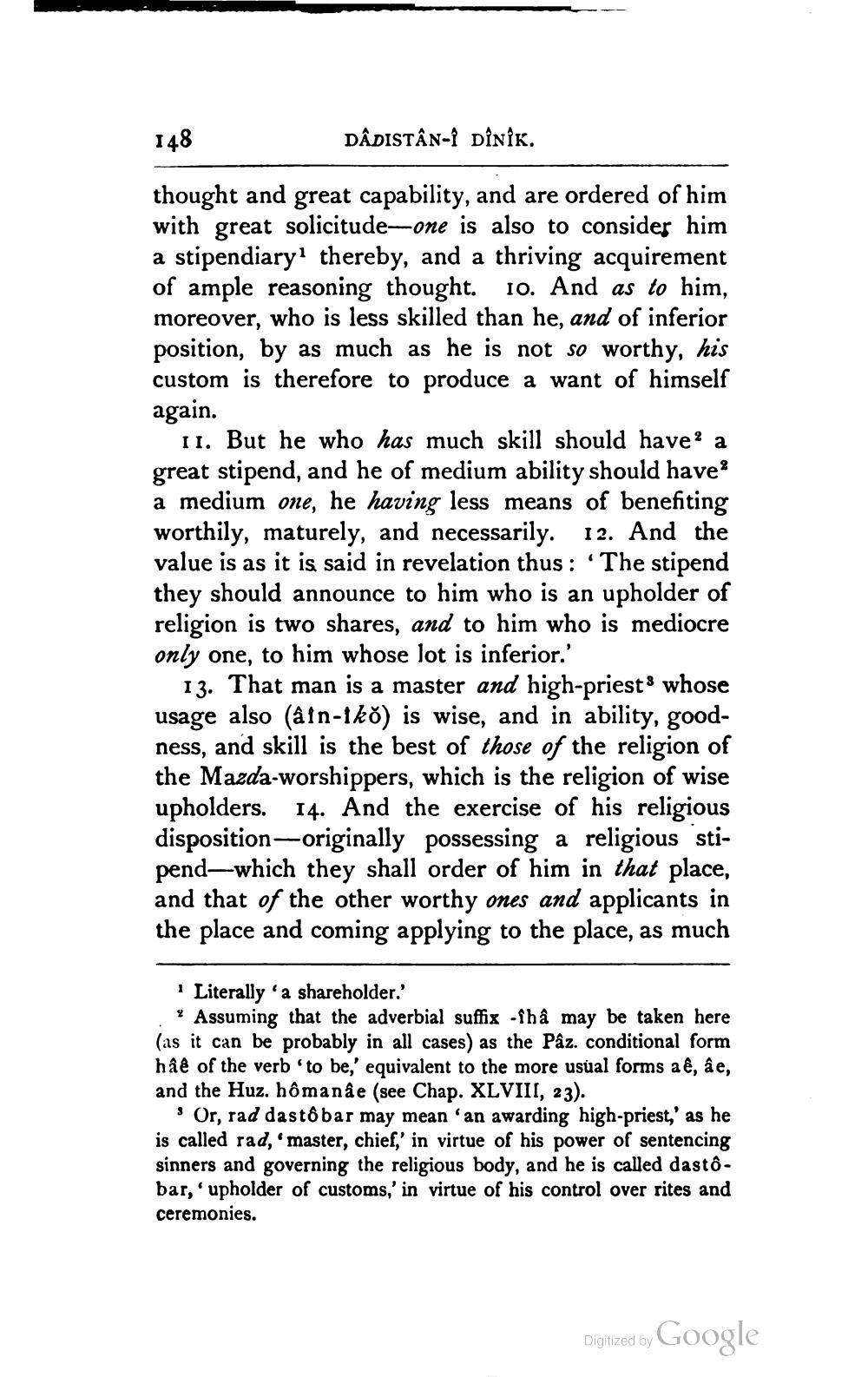________________
148
DÂDISTÂN-Î DÎNÍK.
thought and great capability, and are ordered of him with great solicitude-one is also to consider him a stipendiarythereby, and a thriving acquirement of ample reasoning thought. 10. And as to him, moreover, who is less skilled than he, and of inferior position, by as much as he is not so worthy, his custom is therefore to produce a want of himself again.
11. But he who has much skill should have a great stipend, and he of medium ability should have a medium one, he having less means of benefiting worthily, maturely, and necessarily. 12. And the value is as it is said in revelation thus: “The stipend they should announce to him who is an upholder of religion is two shares, and to him who is mediocre only one, to him whose lot is inferior.'
13. That man is a master and high-priests whose usage also (âin-iko) is wise, and in ability, goodness, and skill is the best of those of the religion of the Mazda-worshippers, which is the religion of wise upholders. 14. And the exercise of his religious disposition-originally possessing a religious stipend—which they shall order of him in that place, and that of the other worthy ones and applicants in the place and coming applying to the place, as much
i Literally 'a shareholder.'
% Assuming that the adverbial suffix -ihå may be taken here (as it can be probably in all cases) as the Paz. conditional form hâè of the verb 'to be,' equivalent to the more usual forms a ê, â e, and the Huz. hômanae (see Chap. XLVIII, 23).
Or, rad dastóbar may mean an awarding high-priest,' as he is called rad, 'master, chief,' in virtue of his power of sentencing sinners and governing the religious body, and he is called dastô. bar, upholder of customs,' in virtue of his control over rites and ceremonies.
Digized by Google




